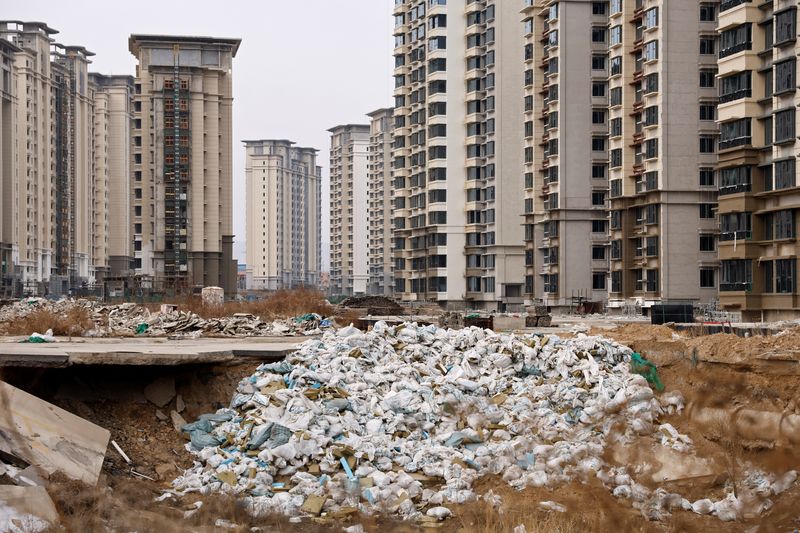By Leika Kihara
TOKYO (Reuters) -Dangers to Asia’s economic system have elevated from escalating commerce tensions, China’s property sector woes and the potential for additional market turbulence, the Worldwide Financial Fund (IMF) mentioned on Friday.
Persistent downward value pressures from China can “provoke trade tensions” by hurting sectors in neighbouring nations with comparable export constructions, the IMF mentioned, urging Beijing to take steps to realize a extra demand-driven restoration for its economic system.
“A longer and larger-than-expected slowdown in China would be harmful for both the region and the global economy,” the IMF mentioned in its regional financial outlook report for Asia.
“China’s policy response is critical in this context,” it mentioned, calling on the necessity for steps to facilitate property sector adjustment and strengthen personal consumption.
In its newest forecast, the IMF expects Asia’s economic system to broaden 4.6% in 2024 and 4.4% in 2025 with looser financial coverage throughout the globe seen boosting personal demand subsequent 12 months.
The projections for 2024 and 2025 have been each revised up by 0.1 proportion level from the IMF’s forecasts made in April, however decrease than the 5.0% growth in 2023.
Dangers have been “tilted to the downside” as previous financial tightening steps and geopolitical tensions might damage world demand, enhance commerce prices and jolt markets, the IMF mentioned.
“An acute risk is the escalation in tit-for-tat retaliatory tariffs between major trading partners,” which might irritate commerce fragmentation and damage progress within the area, it mentioned.
Whereas low progress, excessive debt and escalating wars topped the official agenda finally week’s Worldwide Financial Fund and World Financial institution annual conferences, finance leaders spent a lot of their power worrying concerning the potential impacts of a return of Donald Trump to energy within the Nov. 5 U.S. presidential election.
Trump has vowed to impose a ten% tariff on imports from all nations, and 60% duties on imports from China, which might hit provide chains all through the world, analysts say.
“It’s clear tariffs, non tariff-barriers and domestic content provisions are not the right solutions, since they distort trade investment flows and undermine the multilateral trading system,” Krishna Srinivasan, director of the IMF’s Asia and Pacific Division, instructed a information convention on Friday.
“At the end of the day, these kind of measures will lead to higher prices being paid by consumers and investors,” he mentioned.
The IMF mentioned current market turbulence might additionally foreshadow future bouts of volatility as markets value in extra, massive rate of interest cuts by the U.S. Federal Reserve, and gradual fee hikes by the Financial institution of Japan.
“Sudden changes in expectations of these policy paths could cause exchange rates to adjust sharply, with spillovers into other financial market segments,” the report mentioned.
“Although volatility by itself would not necessarily be harmful, it could undermine consumer confidence and investment,” it mentioned.

The IMF expects China’s economic system to broaden 4.8% in 2024, up 0.2 level from its forecast in April however slower than final 12 months’s 5.2% enhance. The nation’s progress is anticipated to sluggish additional to 4.5% in 2025, the IMF mentioned.
China is concentrating on progress of roughly 5.0% for 2024.




